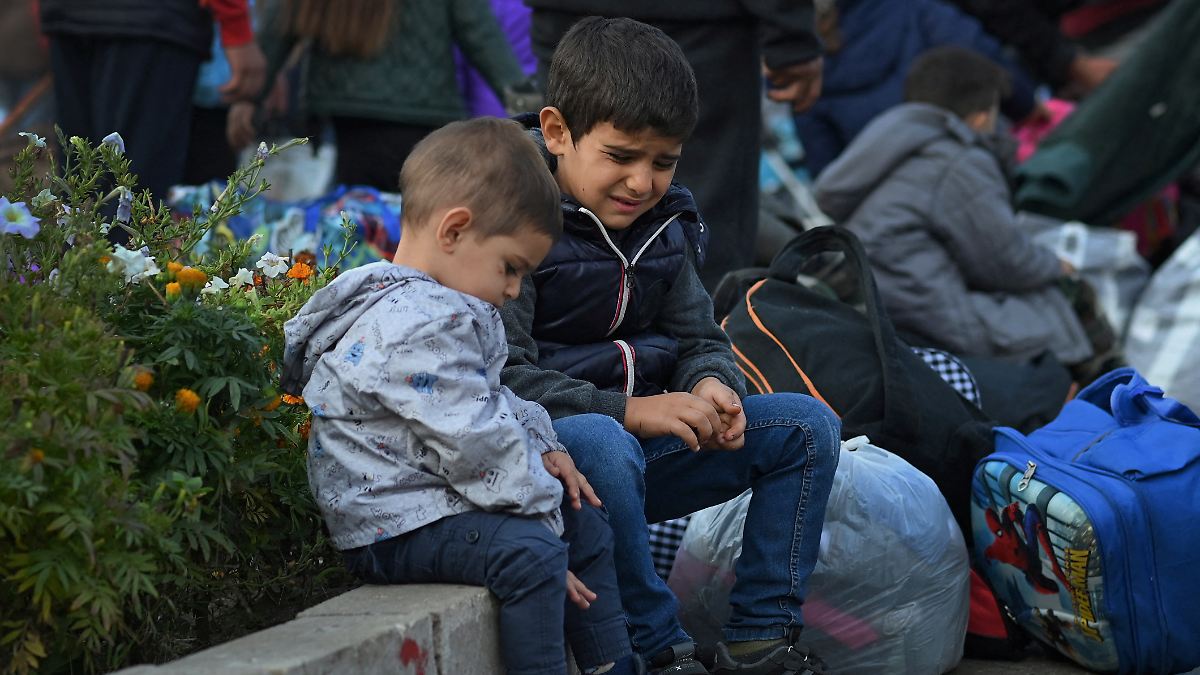Over 100,000 leave the region
Almost all Armenians are fleeing Nagorno-Karabakh
This audio version was artificially generated. More info | Send feedback
Around 120,000 Armenians live in Nagorno-Karabakh. After Azerbaijan's military offensive, most of them have to leave their homes. They flee to Armenia. Now only a few are holding out in the self-proclaimed republic. It could be the end of Nagorno-Karabakh.
Ten days after the Azerbaijani army's victory over pro-Armenian fighters in Nagorno-Karabakh, more than 100,000 people have now fled the Caucasus region. A spokeswoman for Armenian Prime Minister Nikol Pashinyan said 100,417 refugees had been registered in Armenia. This means that a large proportion of the estimated 120,000 inhabitants have now left Nagorno-Karabakh.
According to a former official representative of the self-proclaimed republic, the “last” groups of refugees are heading towards Armenia. According to unofficial information, at most “a few hundred” people, including mainly officials or employees of emergency services and volunteers, are still in Nagorno-Karabakh, wrote Artak Beglarian on X (formerly Twitter).
It is feared that the mass exodus out of fear of the Azerbaijanis will draw a line under many centuries of Armenian life in the region. “One more day and the electricity will dry up,” said Armenian Minister of Regional Administration and Infrastructure Gnel Sanosyan. “Then all that remains is to take care of the needs of the newcomers.”
Nagorno-Karabakh will “cease to exist”
Azerbaijan launched a large-scale military offensive in the region on September 19th. Just one day later, the pro-Armenian fighters there declared their surrender. On September 28, the dissolution of the self-proclaimed Republic of Nagorno-Karabakh was announced on January 1, 2024. Nagorno-Karabakh, which was predominantly inhabited by Armenians, would “cease to exist,” a decree said.
Nagorno-Karabakh belongs to Azerbaijan under international law, but so far the majority of ethnic Armenians have lived there. The region declared independence in 1991 after a referendum that was not internationally recognized and boycotted by the Azerbaijani minority.
Azerbaijan and Armenia have been fighting over the region since the collapse of the Soviet Union and have therefore fought two wars, most recently in 2020. At that time, after six weeks of fighting with more than 6,500 deaths, Russia, which had long been an ally of Armenia, brokered a ceasefire agreement that forced Armenia to give up large areas. The Russian forces stationed in Nagorno-Karabakh did not oppose the latest Azerbaijani offensive.




